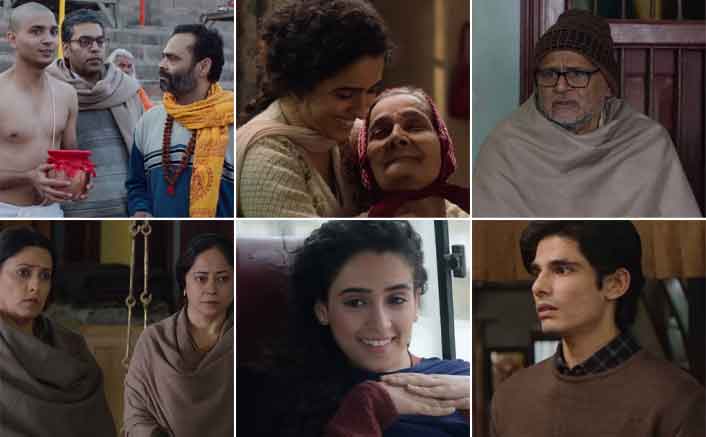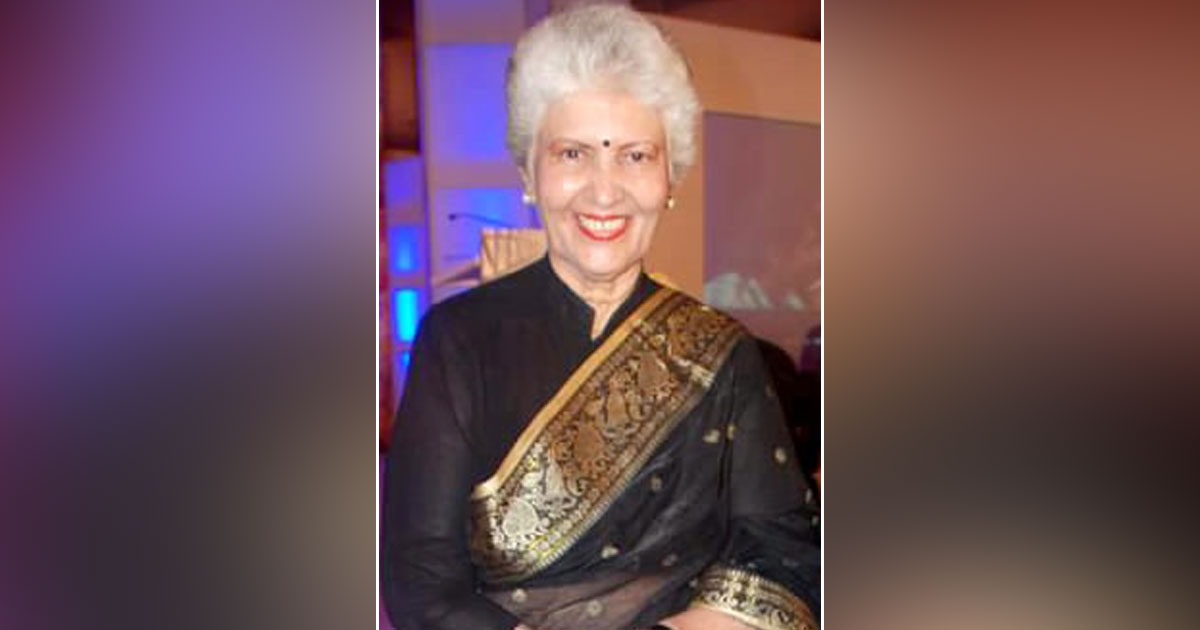
As a guest blog post by our readers, Koimoi.com brings to you a write up by Archita Rai on why she thinks Sanya Malhotra‘s Pagglait ‘shakes the system’ humourously! Read on…
“लड़की लोग को जब अक्कल आती है,
तो दुनिया उन्हें पगलैट ही बुलाती है।”
If you have watched the movie, you know the timing of this dialogue is serene. This being so on point and famous yet isn’t my favourite part. My favourite parts are those scenes which make you wonder how it is connected with the main plot of Sanya Malhotra led drama.
Trending
The main plot is minimalistically simple – A man named Astik Giri’s sudden demise leaves his entire family in a state of grief and shock. By family, I mean his relatives and his brother’s best friend.
Sounds simple right? But Sandhya (Sanya Malhotra), who got married to Astik 5 months ago, unlike everyone else, isn’t weeping.
A woman not weeping on the sudden death of her husband? A woman not breaking her bangles and not changing into only whites? A new widow who is asking for a cold drink? This isn’t a characteristic, and it isn’t breaking the stereotype. The writer and director, here, didn’t want to show ‘a new face’ of a widow. They just wanted to ask you, ask the audience that is it okay not to bang your head if your spouse dies? If you barely knew him/her.
Did Pagglait’s Sandhya feel nothing? She did. She cried when she realised that she didn’t know her husband’s favourite colour. When she releases that, she never saw how he kept his things. No one helped her in her journey from feeling nothing to feeling the pain of losing someone.
She herself found out about ‘the other woman’ (Sayani Gupta) – a concept shown in a very ‘modern’ manner without making that lady look like a vamp, without her wearing black and being mean. If anything, the other woman was caring and wanted to answer all the questions Sandhya had for her.
By now, it feels like the entire film is about a triangle? But trust me, it isn’t. It’s about all those buas, fufaji, mausa, mausi, uncle, aunty, chacha, chachi etc. It’s about them and their nose, which happens to be in Sandhya’s life more than it should be.
You can’t hate these characters because they’re so true. At one point, it all feels so real. They all have an opinion, advice and comebacks (and truly brutally honest north Indian comebacks).
My most favourite scene is when all the adults are discussing whether Sandhya is pregnant or not. A teenage girl explains that she isn’t because she is on her periods. The Tayaji (elder brother of Astik’s father played by the brilliant Raghuvendra Yadav) gets scandalised. In my opinion, that particular scene is so strong that it should be used as an example of how to give your audience a good laugh and a reason to think about it.
As a writer, Umesh Bist took each and every angle and made it humourous. From the ‘inappropriately filmy’ doorbell to the way Parchun gives the packet of chips to Sandhya, the stereotype of Nazia, the teenage fling & a lot more – all the little things reached me & nothing felt overboard or out of context.
I have grown up watching Ashutosh Rana‘s serious acting, but this one stands out due to its novel writing. He has beautifully played the role of a father who has just lost his child. A man who does everything people ask him to do without taking a break and actually talk about Astik.
Astik’s mother who is so busy taking care of the guests, making sure everyone gets tea and is comfortable. Sheeba Chaddha plays that effortlessly.
Chetan Sharma, who plays Alok Giri Sandhya’s brother-in-law has somehow managed to pull off a perfect younger brother and a young man who cares more about his feelings than religious beliefs, someone who is fasting for his dead brother but also sneaks out and smokes.
He, with all the other outstanding cast, be it Rajesh Tailing, Jameel Khan, Meghna Malik and everyone didn’t make me feel claustrophobic. I could differentiate between Bua and Mausi, for some of you, it can be challenging but don’t worry; all of them have the same motive and the same judging eyes.
Amongst all the members of the family, I, for the obvious reasons, liked Dadi the most. Umesh Bist ji made Dadi as the way to explain the whole concept behind PAGGLAIT to the other members of the family as well as to the audience.
“औरत को अपने फैसले खुद लेने चाहिए,
नहीं तो उनके बदले कोई और ले लेगा।”
This movie doesn’t talk ill about widows, arrange marriage, prominent families or women. It just shows how society sees them. It most definitely doesn’t see them as PAGGLAIT, but we do need more and more PAGGLAITS.
Must Read: Not Just Akshay Kumar But 45 Junior Artists Of Ram Setu Test Positive For COVID-19



 Follow Us
Follow Us











